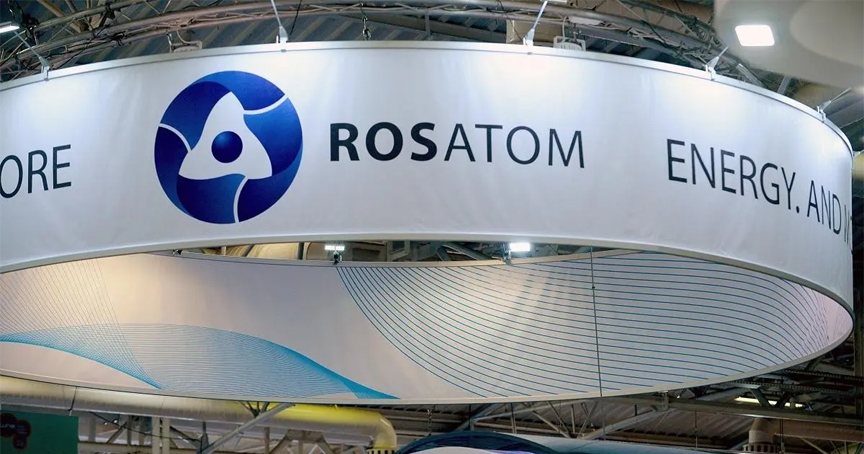
New Nation Report :
Bloomberg reported that the US is considering placing sanctions on Russia’s state-owned atomic energy corporation, Rosatom Corp., which is a key supplier of fuel and technology to power plants throughout the world.
The White House is engaging with the nuclear power sector about the potential consequences, according to the sources, who asked to remain anonymous to disclose confidential discussions.
The Rooppur Nuclear Power Plant is being built in Bangladesh, and Rosatom is the main contractor, reactor supplier, and nuclear fuel supplier. Rooppur will utilise the Russian flagship technology, Generation III+ VVER-1200, which has a modular and compact architecture.
The United States’ penalty may complicatethe construction and future operation of Rooppur Nuclear Power Plant because of already imposed financial sanctions imposed and potential restrictions on nuclear fuel supply by Russia.
By 2023, the $12.65 billion project, which is sponsored in part by Russia, is scheduled to add 2400MW to the national grid. This project is intended to recover its construction expenses during the first 20 years of operation, with a service life of more than 60 years.
The R-NPP project will have a predicted electricity cost of $47 per megawatt hour at current imported fuel costs. This is far less expensive than HFO or LNG in the country. Bangladesh already has substantial over capacity in the power sector with contracts that forces government to pay capacity charges in US dollars even when private sector plants are not supplying power to the grid.
Because Rosatom and its subsidiaries contribute for around 35 percent of worldwide uranium enrichment and have agreements to transport nuclear material to countries across Europe, the business is a tricky target. Any punishment would also have to exempt the work Rosatom undertakes with Iran under the provisions of the nuclear deal, which Biden is attempting to resurrect.
In Turkey, a major opposition politician has urged its government to reconsider the country’s first nuclear power plant, citing Russia’s state-owned Rosatom’s co-ownership and operation.
According to Cumhuriyet newspaper, Republican People’s Party (CHP) legislator from Mersin Ali MahirBa?arr said in parliament on Saturday that Ankara should terminate any connection to Russia of the $20 billion Akkuyu power plant under development in Turkey’s southern Mersin region.
Akkuyu, Turkey’s first nuclear power plant, is a collaborative project between Turkey and Rosatom, Russia’s state-owned nuclear energy organization.
According to the Conversation news outlet on Sunday, Russia’s Rosatom has begun or will shortly begin work on plants in China, India, Bangladesh, Turkey, Hungary, Belarus, Finland, and Egypt.
The impact of the sanctions on American nuclear power facilities and fuel importers is unknown. In 2020, Russia supplied 16.5 percent of the uranium imported into the United States and 23 percent of the enriched uranium required to power the fleet of commercial nuclear reactors in the United States. Refueling is required every 18 to 24 months on average, and utilities often purchase fuel years in advance and keep large supplies.
When the Biden administration declared on Tuesday that it was blocking Russian imports of petroleum, coal, and other energy items, uranium was noticeably absent.
The Uranium Producers of America has recently urged the Biden administration to prohibit Russian uranium imports, while nuclear industry groups have opposed imposing restrictions on the country’s uranium.
If sanctions are imposed on Russia’s nuclear fuel, nuclear operators in the United States will have to import enriched uranium from other countries such as France, Japan, and China, according to Maria Korsnick, chief executive officer of the Nuclear Energy Institute, who spoke at a press conference during CERAWeek by S&P Global in Houston.

